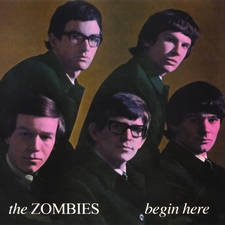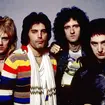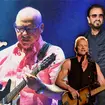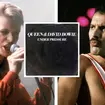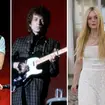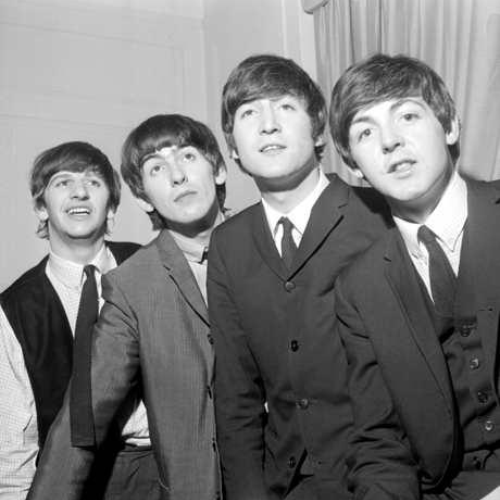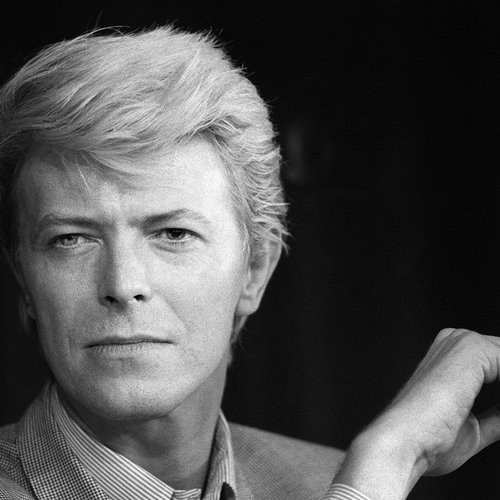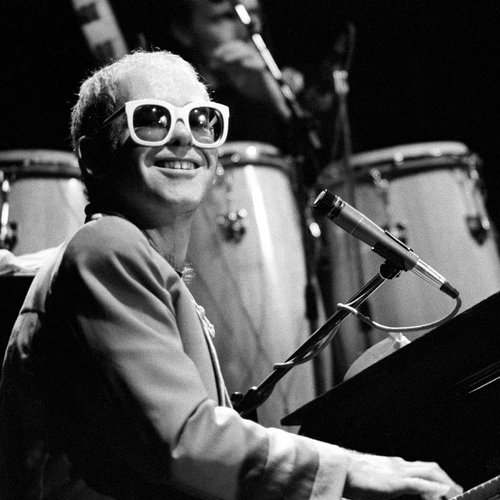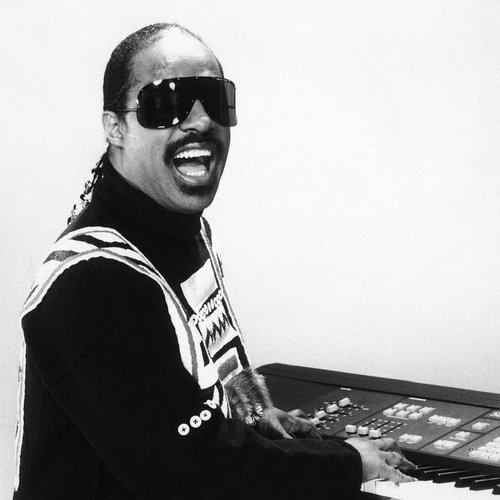'We Are The Champions' by Queen: The making of the ultimate stadium anthem
1 January 2024, 13:00 | Updated: 11 July 2024, 14:52
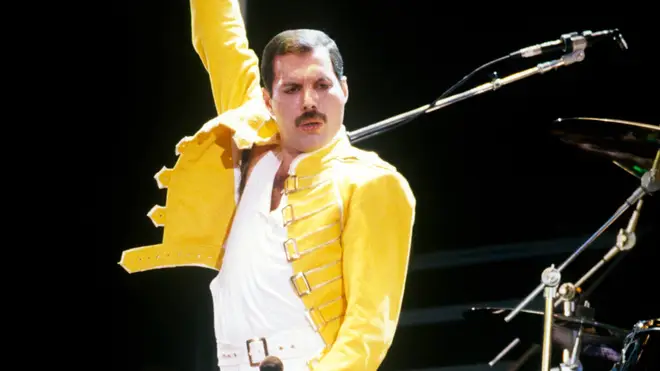
Queen are known for their massive stadium anthems, and they don't get any bigger than 'We Are The Champions'.
Listen to this article
Queen have more massive hits than nearly anyone – you don't get to release THREE completely unique greatest hits albums otherwise.
It's hard to pick their very best, but 'We Are The Champions' is certainly one of their most-loved.
- Queen at Live Aid: The story of the greatest gig of all time
- Queen's 15 greatest songs ever, ranked
- QUIZ: How well do you know Queen's song lyrics?
But which member of the band wrote the song, how did it become a sporting staple, and why is it so damn catchy?
Read on to find out about the making of the ultimate stadium anthem.
Who wrote 'We Are The Champions'?

Queen - We Are The Champions (Official Video)
Unlike so many bands, Queen didn't have all their songs written by just one (or two) songwriters, and they didn't hide who wrote what either.
So Brian May gets credit for songs like 'Flash', We Will Rock You' and 'Too Much Love Will Kill You'. John Deacon is responsible for 'Another One Bites the Dust', 'I Want To Break Free' and 'You're My Best Friend'. Even the drummer got on board, and Roger Taylor is the man behind 'Radio GaGa' and 'A Kind of Magic'.
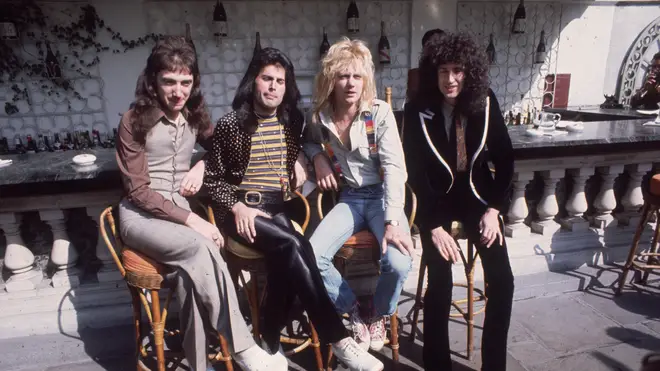
Bandleader Freddie Mercury wasn't just a pretty face and incredible voice though, and he gets sole writing credit for loads of the band's biggest hits, including 'Bohemian Rhapsody', 'Killer Queen', 'Don't Stop Me Now' and yes, 'We Are The Champions'.
As for who plays on it, you've got the full Queen lineup and nobody else, so that means: Freddie Mercury on lead and backing vocals, and piano, Brian May on electric guitar and backing vocals, Roger Taylor on drums and backing vocals, and John Deacon on bass guitar.
It was produced by the band, with assistance from Mike 'Clay' Stone.
When was 'We Are The Champions' released?
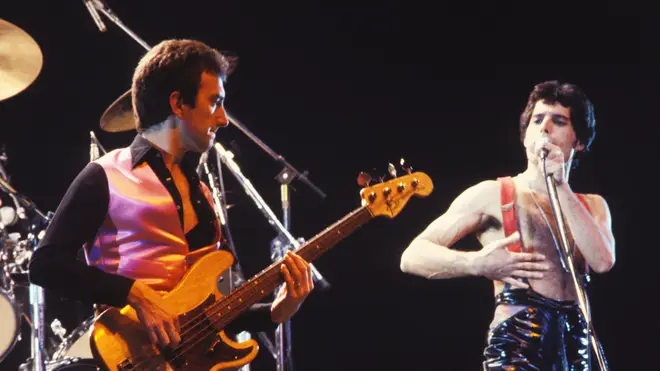
'We Are The Champions' was released as a single October 1977, with 'We Will Rock You' on the B-side, which is one hell of a double-header.
The songs clearly work well as a pair, and the 'We Will Rock You'/'We Are The Champions' combo opened the band's sixth studio album News of the World album, which was released on October 28.
The two songs closed 1981's Greatest Hits, and they've been pretty much inseparable ever since, with the band going from one to the other more often than not in their live sets, including at Live Aid in 1985.
How did 'We Are The Champions' become a sporting anthem?

Queen - We Are The Champions (Live Aid 1985)
The obvious answer is that "people heard it and how could it not be?!"
It was expressly written by Freddie with the idea of bringing people together, and the future King of Wembley Stadium understood sporting crowds.
"I was thinking about football when I wrote it," Mercury told Circus in 1978. "I wanted a participation song, something that the fans could latch on to.
"Of course, I've given it more theatrical subtlety than an ordinary football chant."
- Queen share rare 1975 footage of Freddie Mercury covering Elvis Presley's 'Jailhouse Rock'
- QUIZ: How well do you know Queen's song lyrics?
- 'Under Pressure' by Queen & David Bowie: The making of the ultimate rock duet
Apparently, Freddie wanted to build on the idea of audience response to the band after they were serenaded with 'You'll Never Walk Alone' (itself a football anthem) by a rowdy crowd in Bingley Hall, Stafford.
Brian May later told the Daily Mail: "We wanted to get the crowds waving and singing. It's very unifying and positive. People love it because it’s so uplifting.
"Although much of our music was created using multi-layered arrangements and vocal harmonies – which work especially well in the recording studio – we were into making our concerts musical events."

'We are the Champions:' Fans party at KC Live! after Chiefs' historic Super Bowl win
The video leant into the idea of a baying sports crowd, being direcrted by Derek Burbridge at the New London Theatre on October 6, 1977 and featuring fan club members waving Queen scarves just like football fans.
So it was pretty much written and recorded to become the sports anthem and Queen had enough talent to allow it to fulfil that destiny.
It was an official theme song for the 1994 FIFA World Cup in the US, and also charted at #10 in France during the 1998 FIFA World Cup (having already gone top 20 twice on previous re-releases in 1992 and 1993).
Donald Trump (inevitably) tried to jump on the bandwagon, using the song as an introduction to the Republican National Convention in Cleveland in July 2016, prompting a swift denunciation from the band.
How did a conservative Catholic school help give 'We Are The Champions' a second life?
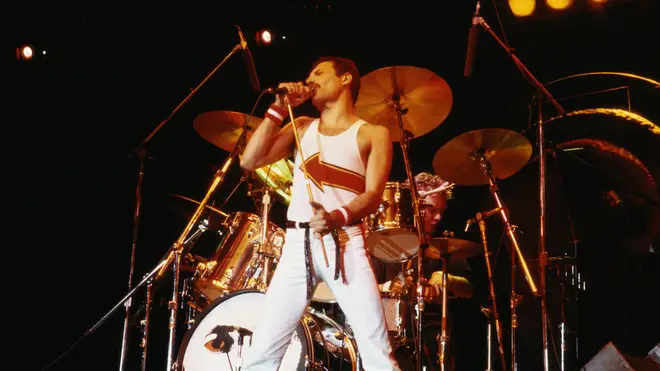
Wayne's World gave 'Bohemian Rhapsody' a boost with that incredible in-car sequence in 1992, taking a re-release all the way to number two in the charts and helping stoke an interest in all things Queen.
And the 8th grade kids at Sacred Heart School in Clifton, New Jersey, were certainly on board, wanting to sing 'We Are The Champions' at their graduation ceremony.
Principal Donald Quinlan and Sacred Heart pastor Julian Varettoni aren't fans though, and they banned the performance.
QUIZ: How well do you know Queen's song lyrics
"If they wanted to sing 'I'm Popeye the Sailor Man', that wouldn’t be appropriate at a religious graduation," Varettoni said. "This has nothing to do with the lifestyle of the author."
Sure.
The kids are alright though, and invite ACT-UP (AIDS Coalition to Unleash Power) to protest on campus and bombard local New York radio station Z100 with requests for the song, helping inspire a re-release and #52 chart hit.
Why is 'We Are The Champions' so catchy?

Queen - We Are The Champions (Raw Sessions Version)
Science!
No, really. In 2011, researchers at Goldsmiths University watched thousands of volunteers singing some selected songs, and observed some similarities among the most sing-along songs, and 'We Are The Champions' topped the list.
"Every musical hit is reliant on maths, science, engineering and technology; from the physics and frequencies of sound that determine pitch and harmony, to the hi-tech digital processors and synthesizers which can add effects to make a song more catchy," said music psychologist Dr Daniel Mullensiefen.
- Queen would still be making music today if Freddie Mercury was alive, says Roger Taylor
- These are Freddie Mercury’s finest ever vocal performances
- Freddie Mercury's 'lost' song 'Time Waits for No One' is finally discovered
Apparently the key to catchy success is long and detailed musical phrases, multiple pitch changes in the main hook, and a (preferably a high pitched) male vocalist.
Okay, we're not entirely convinced by the "science" along the way, but we can't argue with the final result. You don't get catchier than 'We Are The Champions'.
Where did 'We Are The Champions' get in the charts?
They may say "No time for losers", but despite being released in plenty of countries in 1977 and 1978, 'We Are The Champions' didn't actually make it to number one.
It still got to a more-than presentable number 2 in the UK Single Chart, being kept off the top spot for two weeks by ABBA's 'Name of the Game' and another week by Wings' 'Mull of Kintyre'.
It got to number 4 in the US, number 3 in Canada, and top 10 or 15 most everywhere else, including on its many reissues.
Who has covered 'We Are The Champions'?

Green Day - We Are The Champions (Live 8 2005)
Even if you don't include "nearly every football crowd ever", 'We Are The Champions' has been covered a a lot.
Pink, the cast of Glee, Liza Minnelli (at the Freddie Mercury Tribute Concert) and Green Day (at Live 8) have all had a go.
The most horrific version is undoubtedly 'We Are the Champions (Ding a Dang Dong)' by Crazy Frog (remember him?), which was released as a cash-in single ahead of the 2006 FIFA World Cup.

Crazy Frog - We Are The Champions (Official Video)
Either that or the version by former England footballer/manager/spiritualist Glenn Hoddle.
Other noteable covers have come from Hank Marvin in 1992 (featuring Brian May on guitar, with proceeds going to the Terrence Higgins Trust) and The Scorpions 2004 love-letter to F1 racer Michael Schumacher retitled 'You Are The Champion'.
And recently there was 'You Are The Champions' by Queen + Adam Lambert, released in May 2020 as a charity single for the COVID-19 Solidarity Response Fund.
